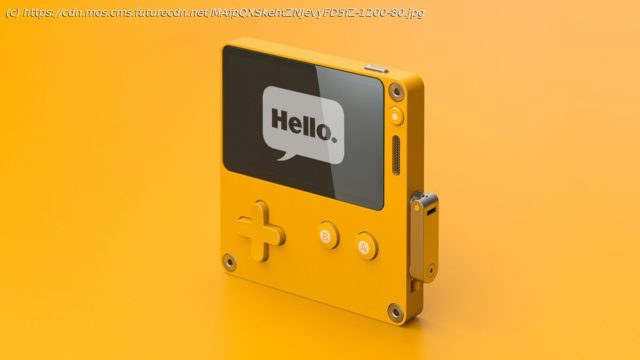…as well as speaking to Katamari series creator Keita Takahashi about his involvement, too.
For all their utilitarian functionality and processing heft, video game consoles rarely replicate such sleek architecture in the actual build. Sony’s new PS5 DualSense controller has been, perhaps optimistically, described as looking like a Stormtrooper imagined by Homer Simpson, while the world awaits a follow up to the conjoined planks of black plastic that formed its console predecessor.
These brutalist aesthetics are often by design. But as we revisit the pixelated mists of gaming time and multiple nostalgic, Proustian memories, it’s clear there is another way, from 1977’s Atari VCS/2600 to 2016’s NES Classic Mini. Indeed, the recently released Home Computers book confirms that space age tools have often accompanied our own adventures into deep fantasy.
“There were no design conventions for the earliest home computers, no rules for how they’d look,” comments author Alex Wiltshire. It’s surely a compliment that Panic’s forthcoming Playdate may fit comfortably within the pages of a speculative 2045 fourth edition.
Announced last May, the Portland-based software and video game company Panic are on the cusp of releasing what they call a “revolutionary” handheld, which has lost none of its wow factor in the intervening months.
The publishers of Firewatch and Untitled Goose Game seem intent on eschewing both the design and gaming conventions that surround Playdate, with a piece of hardware that is simultaneously ahead of its time, of its time and out of time. Pocket-sized, it has a monochrome screen, a crystal-clear image, no backlight and is supported by Wi-Fi, USB, Bluetooth and a headphone jack. Best of all, is the crank.
Triumphantly set in sunbeam yellow, this final feature was added by Stockholm’s Teenage Engineering, who built Playdate in collaboration with Panic. In an interview with TechRadar, Steven Frank, co-founder of the company he set up in 1997 with Cable Sasser, outlined the lengthy journey Playdate has already been on since initially being floated back in 2014.
“The project has grown massively in complexity over time. At first, the idea was to make a simple electronic trinket that we could give to a few dozen close friends to celebrate our company’s 20th anniversary. It somehow just kept evolving and evolving until it became a handheld game system that we were going to be selling to the general public,” he explains.
Even before release, Playdate has developed an almost countercultural vibe, in its transparent intention to “go against the grain”. That approach bleeds into every component of the machine.
So how will Panic judge its success? “I don’t want to be, like, ‘it’s not about the money!’ but in many ways it’s not about the money. At least, not entirely. Some money would be nice,” says Frank.
“But I think in terms of this particular project at this particular time, it would do my heart a lot better to see people out there enjoying it, sharing their experiences, maybe convincing themselves to give game development a try, and have communities forming around that! If it inspires a whole generation of creators, I’d consider that a wild success,” he continues.






